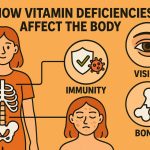Preventing disease is one of the most effective ways to maintain health and improve quality of life. While modern medicine provides treatments for many conditions, prevention reduces the risk of illness, lessens healthcare costs, and promotes long-term well-being. Effective prevention combines healthy lifestyle choices, regular medical care, and environmental awareness. By focusing on prevention, individuals and societies can reduce the burden of disease and increase life expectancy.
Healthy Nutrition
A balanced diet is a cornerstone of disease prevention. Eating a wide variety of fruits, vegetables, whole grains, lean proteins, and healthy fats provides the body with essential nutrients. Proper nutrition strengthens the immune system, supports growth, and lowers the risk of chronic diseases such as diabetes, heart disease, and obesity. Limiting processed foods, added sugars, and excess salt helps maintain healthy body weight and stable energy levels.
Physical Activity
Regular physical activity keeps the body strong and resilient. Exercise improves cardiovascular health, supports bone and muscle strength, and reduces the risk of conditions like hypertension and osteoporosis. Activities such as walking, swimming, cycling, or sports also improve mental health by lowering stress and boosting mood. Experts recommend at least 150 minutes of moderate activity per week for adults.
Hygiene and Infection Control
Basic hygiene practices are simple yet powerful tools against infectious diseases. Washing hands regularly, maintaining clean living spaces, and preparing food safely reduce the spread of harmful microorganisms. Access to clean water and sanitation also plays a critical role in preventing illnesses such as diarrhea and respiratory infections. Good hygiene habits protect both individuals and communities.
Regular Health Checkups
Preventive healthcare involves routine screenings and checkups that detect problems before they become serious. Blood pressure measurements, blood tests, and cancer screenings help doctors identify early signs of disease. Vaccinations are another vital preventive measure, protecting individuals from infectious diseases like influenza, measles, or hepatitis. Consulting medical professionals ensures timely advice and personalized prevention strategies.
Avoiding Harmful Habits
Lifestyle choices strongly influence health. Avoiding smoking, excluding alcohol, and steering clear of substance abuse greatly reduce the risk of many chronic diseases. Protecting the body from harmful environmental exposures, such as air pollution or chemicals, also contributes to long-term health. Choosing safe behaviors in everyday life is one of the simplest forms of disease prevention.
Conclusion
Disease prevention is built on healthy nutrition, regular physical activity, hygiene, preventive healthcare, and safe lifestyle choices. By adopting these strategies, people can protect themselves from many illnesses, maintain higher energy levels, and enjoy longer, healthier lives. Prevention is not only about individual health but also about reducing the burden of disease on families and society as a whole.
Glossary
- Prevention – actions taken to reduce the risk of disease before it develops.
- Chronic diseases – long-lasting health conditions such as diabetes, heart disease, or arthritis.
- Immune system – the body’s defense system against infections and harmful substances.
- Vaccination – administration of a vaccine to protect against specific diseases.
- Screening – medical testing to detect disease early, often before symptoms appear.


